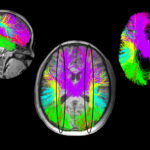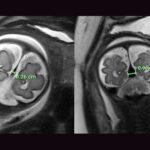Study shows benefits of blended diets

Medically complex children often receive nutrition through gastrostomy tubes (G-tubes) or gastrojejunostomy tubes (G-J-tubes), frequently in the form of conventional formula. Although such formulas can be high in calories, they also tend to be rich in processed carbohydrates and saturated fat and lacking in fiber — characteristics that have been linked to the development of both cardiovascular and pulmonary disease.
Because of recent concerns about the composition of some conventional formulas, an alternative option, blended diets, has been proposed. Blended diets — table food that is pureed in a blender and fed to children through enteral tubes — can provide high-quality nutrition while helping foster the experience of family mealtimes. Despite such potential benefits, a lack of robust data has kept many clinicians from fully embracing and recommending blended diets.
Clear-cut advantages
To characterize both clinical and patient-reported outcomes of children fed blended diets, Bridget Hron, MD, Rachel Rosen, MD, MPH, and their colleagues in the Aerodigestive Center at Boston Children’s Hospital studied 70 children who required enteral feeding support. These patients were classified as either being fed a blended diet or conventional formula diet, and provided further detailed dietary information in the form of food journals and interviews with a registered dietitian. Hron, Rosen, and the team also assessed patients’ rates of hospitalization and emergency room (ER) visits, their satisfaction with their feeding regimen, and a variety of symptom and quality-of-life measures.
They found that rates of total annual ER visits, hospital admissions, and respiratory admissions were significantly lower in children who received blended diets than in those fed conventional formula. Specifically, total ER visits were reduced by 43 percent, total admissions by 53 percent, and respiratory admissions by 67 percent. These patients also reported higher satisfaction, less nausea, vomiting, abdominal pain, and diarrhea, and fewer total symptoms than their peers. Their intake of dietary fiber was higher than that of their peers, while their intake of vitamin D was lower. Both groups received plenty of folate, iron, and zinc.
A beneficial alternative to formula
These findings, published in The Journal of Pediatrics, suggest that blended diets are a well-tolerated, safe, and relatively low-cost intervention to improve health outcomes in these children. They also have the potential to significantly reduce healthcare costs. “Families often prefer use of blended diets, and we were pleased to see that they had promising health benefit — a win-win for everyone,” says Hron.
As a next step, Hron and Rosen are studying the pathophysiology of why these diets are beneficial. “We are excited to have a non-pharmacologic method to improve health outcomes in aerodigestive patients,” says Rosen. “We really see such diets as one of the first major advances for respiratory and GI symptom control in children.”
“This research is an important first step in documenting the benefit of these diets so that their use can be incorporated into the care plans of more patients,” she adds. “Close supervision of the diet by a team of specialists including registered dietitians, gastroenterologists, and pediatricians is important to make sure all of the needed nutrients are provided.”
Learn about the Aerodigestive Center.
Related Posts :
-

Unveiling the hidden impact of moyamoya disease: Brain injury without symptoms
Moyamoya disease — a rare, progressive condition that narrows the brain’s blood vessels — leads to an increased risk of stroke ...
-

Forecasting the future for childhood cancer survivors
Children are much more likely to survive cancer today than 50 years ago. Unfortunately, as adults, many of them develop cardiovascular ...
-

Genomic sequencing transforms a life: Asa’s story
Asa Cibelli feels like he’s been reborn. The straight-A middle schooler plays basketball and football, does jiu jitsu, is ...
-

Could the falcine sinus hold the key to vein of Galen outcomes?
A Boston Children’s Hospital study uncovers how fetal magnetic resonance imaging (MRI) could be a game-changer in predicting outcomes ...





